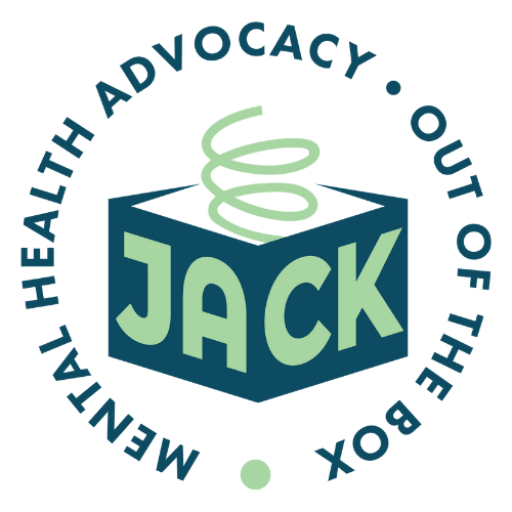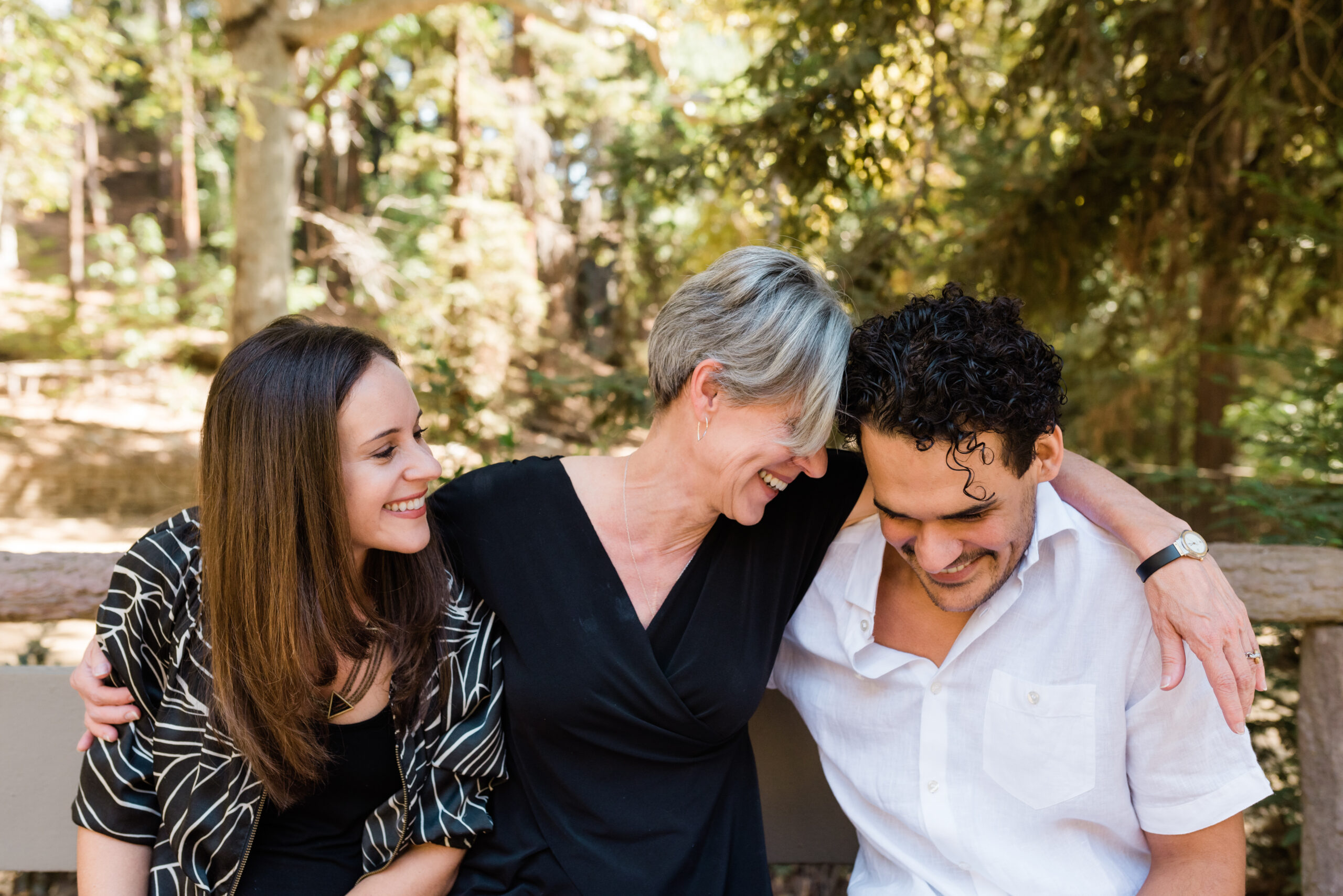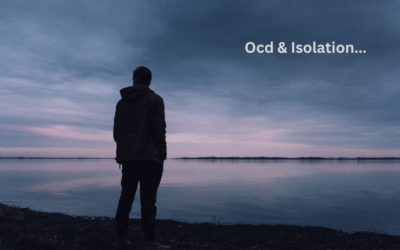Living With OCD
Those who know me well (or even as an acquaintance) quickly learn that I live with severe obsessive-compulsive disorder (OCD). I think this is because I talk about it openly. But also, because my suffering from this illness can be obvious, intense, and memorable.OCD is a term thrown around frequently in our culture, but it’s commonly misunderstood and sometimes ridiculed. For example, we might think the phrase “I’m so OCD” means that someone likes to be overly neat, tidy, and organized. But anyone who has loved a person with this disorder can see that OCD is no laughing matter.
What is OCD?
OCD is the prevalence of obsessions/compulsions, which significantly interfere with a person’s daily functioning. In our culture, when we say someone is “obsessed” with something, we usually mean that the person likes a particular idea, hobby or activity very much. In my life, someone could easily say, “Summer is obsessed with Pokémon.” As a child, I spent countless hours doing anything and everything Pokémon. Even now, as an adult, I spend a significant amount of time around Pokémon. And interestingly, I met my boyfriend and best friend through Pokémon.
It’s like the song lyric you can’t get out of your head…
The clinical definition of “obsession” is different from the cultural definition I described above. In clinical psychology, an “obsession” represents a persistent thought, image, or urge. Further, the obsession causes significant anxiety and distress. Of course, everyone has bizarre, intrusive thoughts at times. Most people can say, “That’s an interesting thought,” and move on with their day. However, in the mind of a person with OCD, these thoughts happen far more frequently and with much greater intensity, becoming stuck in the brain. It’s like that annoying song lyric you can’t get out of your head. Except to the OCD sufferer, the lyric is deeply distressing and anxiety-inducing.
It’s like the record got stuck.
Obsessions and Compulsions
Humans, by nature, hate discomfort. So naturally, the person with OCD will try to get relief. Compulsions, or repetitive, rigid acts, can be done physically (such as the stereotypical hand washing) or mentally (such as mentally checking if the stove was left on). The compulsions appear to help at first, and for a while they alleviate the anxiety. But over time, the rituals become increasingly elaborate and time-consuming. And if left unchecked, they take over a person’s life.
This is My OCD Story
I knew something was different about my brain from a very early age. On the one hand, I knew I was gifted, and I impressed my teachers, parents, and peers with above-average analytical intelligence. I loved to learn. My favorite subject in school was math. I haven’t taken a math class in years due to my disability, but I still say that I’d rather do calculus than chores.In my elementary school years, my differences surfaced as extreme perfectionism. By 3rd grade, my art skills were pretty good, and I was drawing Pokémon characters nearly identical to the official images I saw in my books. But I rarely, if ever, finished my drawings. They were above average drawings done by a kid my age, but no matter how much someone reassured me, the drawings never felt good enough.
But I rarely finished.
In early childhood, this unhealthy perfectionism manifested in other ways as well. Most notable was that I could not test into the gifted program even though I had above-average intelligence. The reason? Because I never felt sure enough about my test answers, and I changed them multiple times due to constant self-doubt.
My Developing Brain Took a Dark Turn
In middle school, my developing brain took a dark turn. I started having my first intrusive thoughts, and they were terrifying. By the middle of 8th grade, my mind had begun tormenting me day and night with obscenities, blasphemies, and bothersome sexual images. I started to hear F-bombs constantly in my head, even though I did not swear. Most disturbing were the religious obsessions, mainly because I didn’t consider myself religious at the time. This led me to becoming agnostic at age 13, and I wouldn’t go near a church for several more years. I compulsively avoided anything to do with religion, and I developed odd phrases in my head to try to ward off my bothersome thoughts.
Am I Crazy?
Out of a fear of judgment and being labeled “crazy,” I kept silent about this as a teenager, and by some miracle, I managed to get through high school relatively unscathed. I took honors and AP classes and extracurriculars and essentially aced them all. My teachers chose me as “Student of the Year,” and my classmates voted me as “Most Likely to Cure Cancer.” But the sad reality was that I was sick. I didn’t know what this sickness was, but I knew it was a sickness.In high school, obscenities plagued my mind 24/7. During this time, I tried to ignore them. Or I attempted to push them away with bizarre mental phrases. But the rituals never delivered what they promised. The thoughts always came back to torment me. Not only did the thoughts never leave me, but my extreme perfectionism from childhood remained strong and active. I spent an excessive amount of time doing schoolwork. Math came easily to me. I loved having an excuse to do my math homework or read ahead in my textbook. I loved how “black and white” math felt to my brain and how it always seemed to have a “right” answer.
But writing was a different experience for me. Teachers assured me that I was a great writer, but what teachers may not have realized was that at home, I spent hours writing, editing, and re-re-editing my papers to the point of tearful agony. It was stressful for me, but also for my mother. She tried very hard to help me, but her suggestions never gave me that “just right” feeling that I craved so desperately in my brain.
A Terrifying Downward Spiral
By the start of my senior year of high school, my still-undiagnosed OCD and resulting depression became too much for me to bear. I felt unchallenged and bored at school. This perfect storm catapulted me into a terrifying downward spiral of deep despair and unceasing anxiety. Amid this turmoil, I came to Christ, which happened suddenly, unexpectedly, and dramatically. I began to experience a supernatural peace for the first time. But my mental illness remained undiagnosed and active, and I began to act in extreme ways regarding my newfound faith.
Diagnosis and “Functioning”
Early during my first semester of college, I stepped into Counseling and Psychological Services. It was there that a professional first suggested to me that I might have OCD. Immediately, I recognized some of the symptoms in myself, like the distressing religious thoughts. But for the most part, I dismissed the diagnosis, didn’t seek further professional help, and continued to live my life as best I could. Looking back at that time, I probably would have qualified for admission into a residential psychiatric facility. But I still “functioned”. I maintained a good college GPA, was active in my new church, ate relatively well, and exercised regularly.It wasn’t until my mother died of cancer, that I realized just how badly I needed help. Within a few months of her death, I experienced a complete psychological collapse. My fiercest advocate, my best friend, had died of this terrible illness, and I was only 22, with a myriad of psychiatric issues. I have always been good with words, but when I try to articulate the pain I felt, I come to the limits of language. The best description I have come up with is the feeling of being stabbed internally multiple times over and over, gushing out blood.
It became apparent that I needed professional help.
It became apparent that I needed professional help. And thank God, my mom left me with resources. So, I began the long, arduous journey of therapy. At this stage, I was nearly catatonic, and when I first stepped into the office of the therapist who would work with me for several years, I was in such deep psychological pain that I didn’t know where to begin. Consequently, we started with the most pressing issue, the grief of losing my mother.
Counseling and Grief…
Over time, it became evident that my grief was complicated due to my other diagnoses that had not received proper treatment. EMDR, which is a popular form of therapy used to treat PTSD, helped me process trauma, but it could not help me with my constant looping or depression. Eventually, my therapist and I hit a brick wall in my treatment. It became clear to us that I needed special help.I searched long and hard for this “special help.” It was not handed to me on a silver platter. Thankfully, I have always had a knack for research, and in this instance, it served me well. In one of my public health classes, we were asked to read a memoir written by someone with a severe mental illness. Naturally, I chose the book written by a person with OCD. I remembered the “suggestion” of an OCD diagnosis made to me at age 18.
This book, Rewind, Replay, Repeat – A Memoir of Obsessive-Compulsive Disorder, was a godsend.
It changed my life. In it, San Francisco news anchor Jeff Bell recounts his excruciating battle with debilitating OCD. On the surface, his obsessive-compulsive fears looked very different than mine. His OCD revolved around harm, whereas mine revolved almost exclusively around perfectionism, religion, and morality.
But the thought process underlying the disorder was the same. It started with an insidious thought or “what if?” question demanding my immediate attention. This was followed by debilitating anxiety and uncertainty that seemed to go away with a nonsensical act called XYZ, only to lead to even more fear and uncertainty, with the original thought popping up again and again. The compulsive thought returned more and more until I found myself trapped in this looping hell of incessant doubt.
OCD explained my insidious thoughts, endless looping, and excessive reassurance-seeking demanding answers to the same questions. It also explained why I never finished my drawings. And it explained why it took years for me to step into a church. It even explained why, when I did come to genuine faith in Christ, I compulsively avoided anything and everything having to do with my former irreligious life. My avoidances included subjects I loved, hobbies I once pursued, places I attended as a non-Christian, and even people I cared about.
Terrified of My Own Mind
Because I was terrified of my mind and what it would throw at me. I always cared about excellence, morality, and truth. That is the core of who I am. But OCD hijacked my sense of morality and turned it into hyper-morality. It seized my love of excellence and turned it into an impossible pursuit of perfection. Well, glory be to God, I am done living with debilitating OCD. I am 29 years old this July. Since I lost my mother seven years ago, I have been through two residential treatment centers, two partial hospitalization programs, one intensive outpatient program, and countless other traditional outpatient therapy sessions. When I first entered intensive treatment for OCD, my symptoms were so severe that nowhere in my home state of Arizona could treat me.
ERP, CBT, Mindfulness and Meditation
I had to travel to Wisconsin alone to have any chance of getting better. Even with insurance, my time there was incredibly expensive. The gold standard treatment for OCD, a type of cognitive-behavioral therapy called exposure and response prevention (ERP), is pretty straightforward. You face something that triggers your obsessions, and then you resist your compulsions. It’s usually done gradually in an exposure or fear hierarchy.
OCD treatment usually combines an assortment of ERP, certain other types of cognitive-behavioral therapy, mindfulness, and medication in severe cases like mine. Evidence-based treatment for OCD is effective for most people, but it’s expensive, hard to find, and challenging to implement.
The World Health Organization lists OCD as one of the top ten most disabling health conditions. In the US, it is a leading cause of disability applications and a significant contributor to unemployment and underemployment. In times past, OCD was known as the “doubting disease” and thought to be untreatable and incurable. There is still no cure for OCD, but there is an effective treatment, and the scientific community now considers OCD to be one of the most treatable mental health disorders.
I can’t do it alone.
In Conclusion…
My OCD has cost me relationships, job and educational opportunities, activities I enjoy, thousands of dollars in therapy and thousands more hours of what could have been healthy, fruitful productivity. I do not write to complain because I believe God is sovereign even over my OCD. But I also believe that God has so much more for me, because he is good and gracious and wants to use me in joyful service to him and others. OCD feels like the last major obstacle holding me back from living life fully. It’s painful to let go of these compulsions that have been my companions for so long, but it’s not impossible to let them go.
Only recently have I come to believe that I am strong enough to overcome my OCD without my mom. But I can’t do it alone, so I ask for support. This can be done through prayer or simple words of encouragement. I don’t think I need to go back to residential treatment because I have the tools. I just need to use them! And as I do, God will continue to strengthen me so I can defeat these compulsions one by one and grow in service to him in greater fullness and joy.









